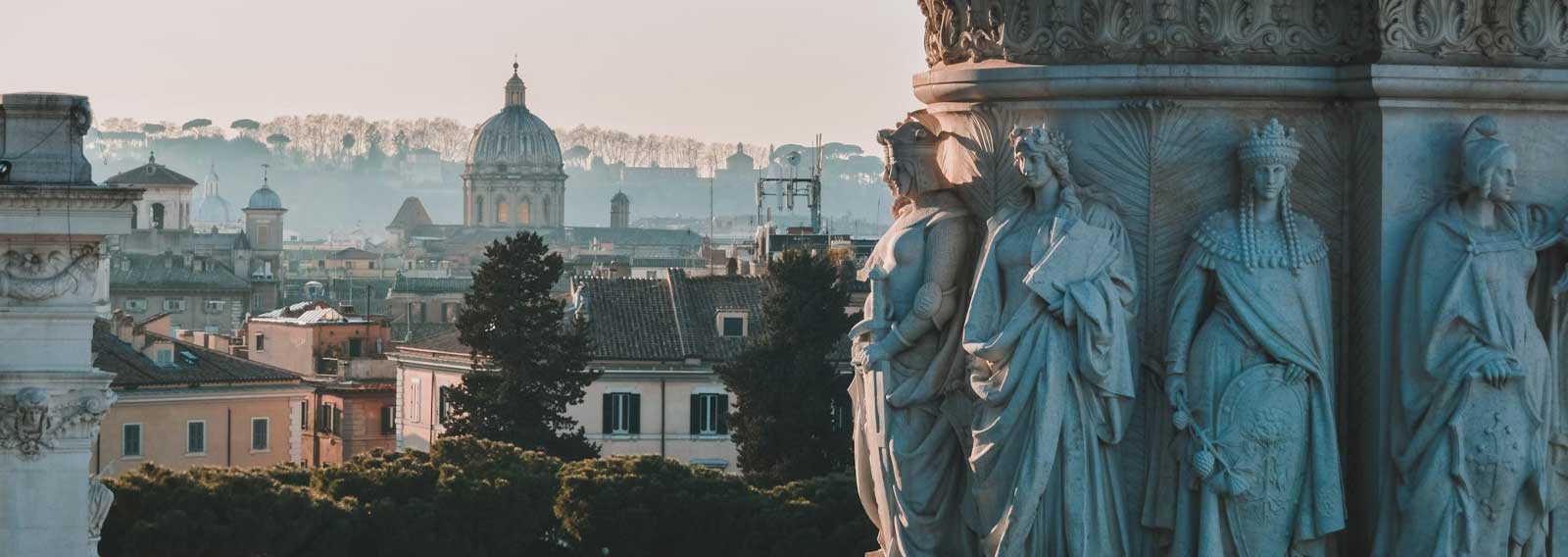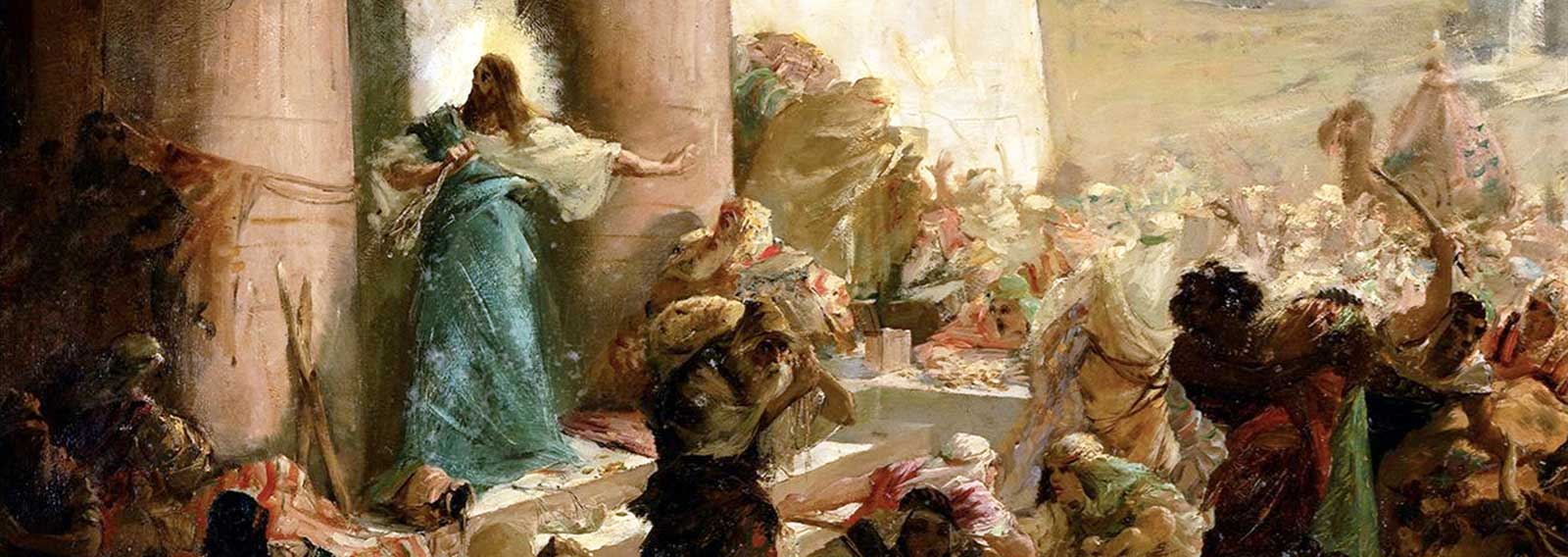Various Christian commentators have made much of what U.S. President Dwight Eisenhower once said in late 1952 in an off-the-cuff remark. They claim he was pushing a diluted, generic religion since he spoke of the importance of religious faith in America, going on to say, “And I don’t care what it is.” However, he did immediately say this: “Of course, it is the Judeo-Christian concept, but it must be a religion with all men being created equal.”
Be that as it may, other more secular critics have sought to argue that America’s Founding Fathers were mainly deists. While some, like Jefferson, certainly were, most in fact were biblical Christians of various stripes. I have sought to make that case in various pieces.
But all this raises the issue of civil religion. That term is meant to express a view that religion can be good for society, but a religion largely devoid of any creeds, theological claims, forms of worship, and so on. That is, it has to do with more generic religious sentiments, values and symbols. It is about binding people together, not under strict doctrinal claims, but with broad-reaching symbols, rituals and ceremonies.
Of course, the biblical Christian who believes that doctrine most certainly does matter, and that a real Christian is someone who does understand the need for theological boundaries, will not be happy with such a watered-down civil religion.
Earlier this week, I wrote about how many public figures and intellectuals in the West of late have come to see the importance of Christianity. Think of folks like Jordan Peterson, Ayaan Hirsi Ali, Douglas Murray, Tom Holland and even Russell Brand. Some of them have even said they are now Christians.
Of course one always wants to know if they are really promoting civil religion instead of biblical Christianity. When Ali came out recently saying she had converted (first from Islam to atheism, and then from atheism to Christianity), some believers asked if this was just a type of cultural Christianity that she had latched on to.
Richard Dawkins was of course quite struck by Ali’s defection from the atheist camp. And he too may be softening, slightly. In the recent past he and the other new atheists foolishly claimed that all religions are equally bad, with no redeeming features about them.
But the truth is, while they lumped all religions together, misotheists like Dawkins in The God Delusion, or Christopher Hitchens in God is Not Great: How Religion Poisons Everything, overwhelmingly singled out Christianity in their attacks. But now Dawkins might be seeing the light – or some of it. Consider this media report:
Pre-eminent atheist Richard Dawkins said on Easter Sunday that he identifies as a “cultural Christian” and that he prefers to live in a country based on Christian principles and would not want the UK to become an Islamic nation. Emeritus fellow of New College, Oxford and God Delusion author Richard Dawkins said that he identifies with Christian society and that he would choose it over other countries based around other faiths, namely Islamic nations.
Speaking to LBC Radio’s Rachel Johnson — the sister of former British Prime Minister Boris Johnson — Dawkins said on Sunday that he was “slightly horrified” that Ramadan lights were put up in London instead of Easter ones. “I do think that we are a culturally Christian country, I call myself a cultural Christian. I’m not a believer, but there is a distinction between being a believing Christian and being a cultural Christian. I love hymns and Christmas carols. I sort of feel at home in the Christian ethos. I feel that we are a Christian country.”
What are we to make of this?
Four things can be said about these matters.
First, and more specifically, whether someone like Ali has actually become a true Christian, or is still just swimming in the waters of cultural Christianity or civil religion might remain to be seen. I would like to think that she has genuinely embraced the Christian faith, but time will tell, and at the end of the day only God knows the human heart fully to make an accurate assessment on this.
But folks like Dawkins, on the other hand, based on what they have clearly stated, would simply be affirming what this piece is all about: civil religion. He likes what Christianity has done by way of making the West what it is, with all its social goods and values, but he wants nothing to do with the particular and exclusive truth claims of Christianity.
Second, so much of this is quite similar to the error of the older theological liberals. These folks were quite keen on the ethics of Jesus while denying or downplaying the teachings of Jesus. But that effort was always doomed to failure. The truth is, the moral beliefs and values of Jesus are inextricably tied in with his specific teachings.
It does no good to speak about loving God and neighbour when we are simply incapable of doing either. Because we are all sinners fully set on self and hostile to God, unless we first hear and apply the actual gospel message of Jesus – that we are lost and headed to a lost eternity, needing to repent and put our faith in Christ and the work he did at Calvary – we are simply unable to love others as God wants us to. As C. S. Lewis once put it, “We are not merely imperfect creatures who must be improved: we are, as Newman said, rebels who must lay down our arms.”
We certainly are unable to come even close to the demanding moral imperatives of something like the Sermon on the Mount (see Matthew 5-7). Only the person who has gained new life in Christ and received the indwelling Holy Spirit can begin to start living out what is found on those lofty moral mountain peaks.
So pretending that we can somehow promote and emulate the neat moral teachings of Jesus while divorced from his entire set of teachings – especially that we are sinners who must repent – will get us nowhere in trying in any way to please God. Only the spiritual man, saved by grace, can please God. Otherwise, we must accept what Paul taught in Romans 8:8: “Those who are in the flesh cannot please God.”
Third, and related to this, I do indeed greatly value what Christianity has done for the West. The reason we have such vital social goods like freedom, genuine pluralism, the rule of law, the moral worth of all persons, and genuine tolerance is exactly because the West is overwhelmingly the product of biblical Christianity.
I can readily see why even atheists like Dawkins can give praise to Christianity for all this. These tremendous social goods are nothing to sneeze at. But they did not arise out of nothing. The Christian worldview is what made Western civilization, and without it, the West would never have come into being.
And do not get me started on the tremendous differences that are found in the teachings and practices of Jesus versus the teachings and practices of Muhammad. It was NOT Islam that gave rise to the West, but Christianity. These differences I have written repeatedly on over the years. See just one piece on this.
Fourth, while I do greatly value the West and all its goods, and will continue to fight for them, I know that it too, like everything else, must one day come to an end. Sure, it will last longer – or less longer – depending on how we treat that which made it possible: biblical Christianity.
But it cannot live on this borrowed spiritual capital forever. Either it must return to its roots – not just in the form of civil religion, but in the form of faith, repentance and revival – or it will soon be a goner. In this regard the words of T.S. Eliot that I have so often quoted from his 1948 book Christianity and Culture are once again worth sharing here:
It is in Christianity that our arts have developed; it is in Christianity that the laws of Europe have – until recently – been rooted. It is against a background of Christianity that all our thought has significance. An individual European may not believe that the Christian Faith is true, and yet what he says, and makes, and does, will all spring out of his heritage of Christian culture and depend upon that culture for its meaning. Only a Christian culture could have produced a Voltaire or a Nietzsche. I do not believe that the culture of Europe could survive the complete disappearance of the Christian faith. And I am convinced of that, not merely because I am a Christian myself, but as a student of social biology. If Christianity goes, the whole of our culture goes. Then you must start painfully again, and you cannot put on a new culture ready made. You must wait for the grass to grow to feed the sheep to give the wool out of which your new coat will be made. You must pass through many centuries of barbarism. We should not live to see the new culture, nor would our great-great-great-grandchildren: and if we did, not one of us would be happy in it. To our Christian heritage we owe many things beside religious faith. Through it we trace the evolution of our arts, through it we have our conception of Roman Law which has done so much to shape the Western World, through it we have our conceptions of private and public morality. And through it we have our common standards of literature, in the literature of Greece and Rome. The Western world has its unity in this heritage, in Christianity and in the ancient civilisations of Greece, Rome, and Israel, from which owing to two thousand years of Christianity, we trace our descent.
While some might ask whether Eliot himself is here pushing a form of cultural Christianity, let me say this: I am glad folks like Dawkins are beginning to realise the overwhelming value of Christianity. But that is not enough – more is needed. He, like everyone else, needs to turn from his self-centredness and rebellion and submit to the God who made him. Barring that, he can continue to be moved by ‘hymns and Christmas carols’ but that will be as close as he gets to the God who stands behind all this.
In sum, I daily pray for guys like Dawkin, Ali and Peterson. You should do the same. But it must be kept in mind that it is not civil religion that will save us. Turning to a Christless religion will only hasten our decline. Only as individuals turn to Christ and start living for him can we expect to see any real reprieve from the current gathering gloom in the West.






















